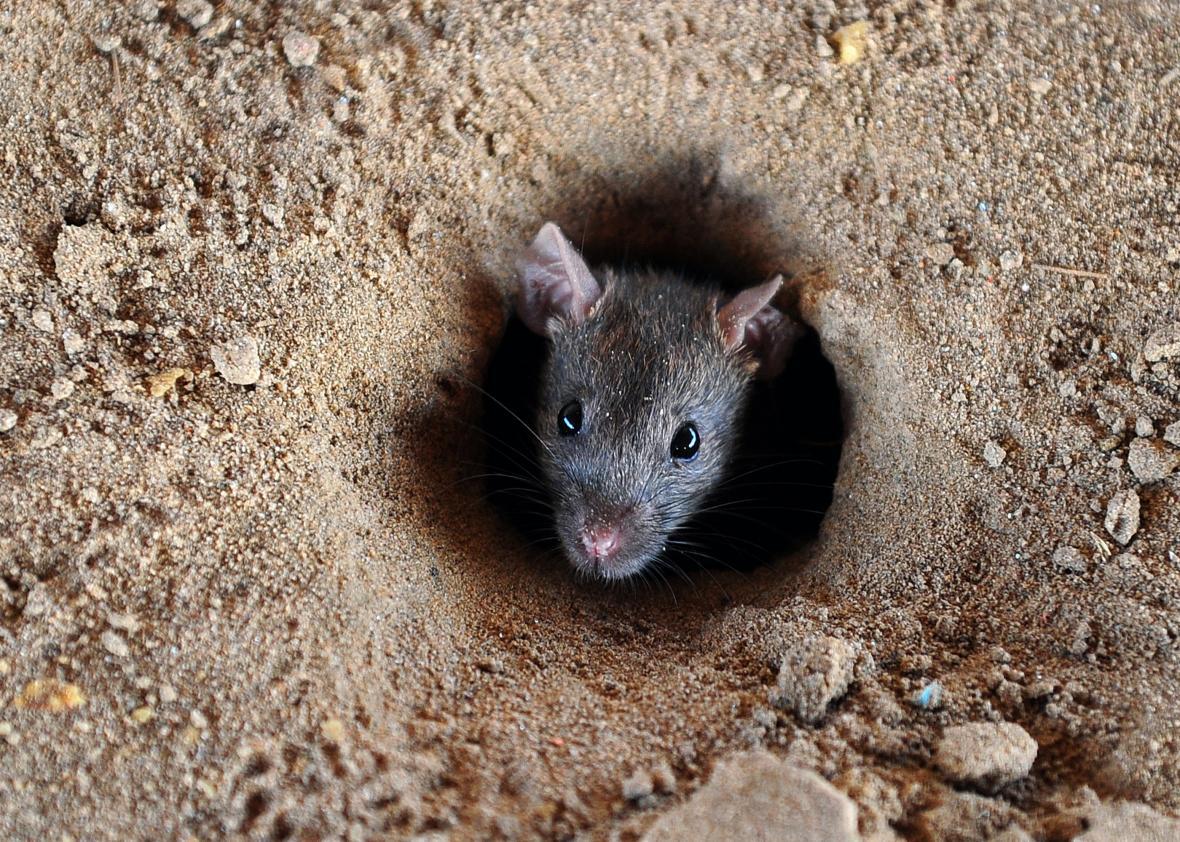There is a bizarre moment in Shakespeare’s As You Like It when the heroine Rosalind finds little love poems for her scattered in the woods. “I was never so berhymed,” she remarks in surprise, “since Pythagoras’ time that I was an Irish rat.” Huh? Things only get stranger in the Norton Shakespeare’s footnote for the line:
I was never overwhelmed with rhyme since the days of the ancient Greeks, when I was an Irish rat. Alluding to Pythagoras’ doctrine of the transmigration of souls and to the popular belief in England that Irish bards were capable of rhyming rats to death.
Wait, Irish bards killed rats with poetry? Apparently this was a thing in Elizabethan England. Two of Shakespeare’s contemporaries, Ben Jonson and Philip Sidney, also reference these rodenticidal rhymes. In Jonson’s Poetaster, a character muses: “I could do worse/…Rhime them to death, as they do Irish rats/ In drumming tunes.” And Philip Sidney notes in his Defence of Poesie: “I will not wish unto you … to be rimed to death as is said to be done in Ireland.” What is going on with Irish pest control?
Ancient Ireland revered its bards, who commanded status, power, respect, celebrity, and fear. The first-millennial Celts believed their poets could literally kill with magical satire. According to folk tradition, the poets conjured up invectives that blistered the skin of foes and sent rival poets (or stingy patrons) to their graves. Early Irish law even criminalized satirical “crimes of the tongue” equal in offense to property theft and spousal rape.
But thanks to a sixth-century bard, Seanchan Torpest, the Irish poets’ most famous victims were mice. Lore has it that Seanchan once suspected some rodents beat him to a special meal his wife left for him. As a 19th-century Irish folk historian tells it, Seanchan “vowed that he would make the mice pay for their depredations, and then he composed a metrical satire on them”:
Mice, though sharp their snouts,
Are not powerful in battles;
I will bring death on the party
For having eaten Bridget’s present.
Small was the present she made us,
Its loss to her was not great,
Let her have payment from us in a poem,
Let her not refuse the poet’s gratitude!
You mice, which are in the roof of the house,
Arise all of you, and fall down.
“And thereupon ten mice fell dead on the floor from the roof of the house,” the account concludes. The Irish built a better mousetrap, apparently.
The bardic tradition persisted in Ireland through the 17th century, and superstitions about their craft lived on with it. Some literary scholars even spy evidence of the rat-rhyming tradition in the cursing and name-calling of the country’s modern bards, William Butler Yeats and James Joyce. Shakespeare likely discovered his Irish rat from folklore imported from the English conquest of Ireland. Perhaps he even read about it in Philip Sidney’s Defence of Poesie, written 20 years before As You Like It.
In the Elizabethan imagination, Irish rat-rhyming no doubt confirmed stereotypes of the island as a savage, primitive, and occult wilderness: “Pray you, no more of this, ‘tis like the howling of Irish wolves against the moon,” Rosalind shushes some uproar in the play. But for Shakespeare, that master conjurer, perhaps it confirmed the weird, wild, and wonderful magic of language.
And as for Rosalind? She didn’t fall dead from her beau’s verses like an Irish rat. She fell in love. “I can do strange things,” she later tells him. “I am a magician.” And she uses that magic of language, so venerated in Ireland’s primeval versifiers, to orchestrate their marriage.
